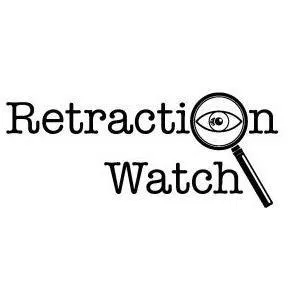Retraction or retract(ed) may refer to:
Retraction or retract(ed) may refer to:
Alveolar consonants are articulated with the tongue against or close to the superior alveolar ridge, which is called that because it contains the alveoli of the upper teeth. Alveolar consonants may be articulated with the tip of the tongue, as in English, or with the flat of the tongue just above the tip, as in French and Spanish.
Lateral is a geometric term of location which may refer to:
The voiced alveolar tap or flap is a type of consonantal sound, used in some spoken languages. The symbol in the International Phonetic Alphabet that represents a dental, alveolar, or postalveolar tap or flap is ⟨ɾ⟩.

The voiced palatal plosive or stop is a type of consonantal sound in some vocal languages. The symbol in the International Phonetic Alphabet that represents this sound is ⟨ɟ⟩, a barred dotless ⟨j⟩ that was initially created by turning the type for a lowercase letter ⟨f⟩. The equivalent X-SAMPA symbol is J\.

The voiced uvular plosive or stop is a type of consonantal sound, used in some spoken languages. The symbol in the International Phonetic Alphabet that represents this sound is ⟨ɢ⟩, a small capital version of the Latin letter g, and the equivalent X-SAMPA symbol is G\.
The voiceless palatal plosive or stop is a type of consonantal sound used in some vocal languages. The symbol in the International Phonetic Alphabet that represents this sound is ⟨c⟩, and the equivalent X-SAMPA symbol is c.
In phonetics, a flap or tap is a type of consonantal sound, which is produced with a single contraction of the muscles so that one articulator is thrown against another.
In academic publishing, a retraction is the action by which a published paper in an academic journal is removed from the journal.

A pharyngeal consonant is a consonant that is articulated primarily in the pharynx. Some phoneticians distinguish upper pharyngeal consonants, or "high" pharyngeals, pronounced by retracting the root of the tongue in the mid to upper pharynx, from (ary)epiglottal consonants, or "low" pharyngeals, which are articulated with the aryepiglottic folds against the epiglottis at the entrance of the larynx, as well as from epiglotto-pharyngeal consonants, with both movements being combined.

Shtokavian or Štokavian is the prestige supradialect of the pluricentric Serbo-Croatian language and the basis of its Serbian, Croatian, Bosnian and Montenegrin standards. It is a part of the South Slavic dialect continuum. Its name comes from the form for the interrogative pronoun for "what" što. This is in contrast to Kajkavian and Chakavian.
Articulation may refer to:
Duration may refer to:
In phonetics, advanced tongue root (ATR) and retracted tongue root (RTR) are contrasting states of the root of the tongue during the pronunciation of vowels in some languages, especially in Western and Eastern Africa, but also in Kazakh and Mongolian. ATR vs RTR was once suggested to be the basis for the distinction between tense and lax vowels in European languages such as German, but that no longer seems tenable.
The arrow symbol ↓ may refer to:
Interpretation may refer to:
The voiceless palatal affricate is a type of consonantal sound, used in some spoken languages. The symbols in the International Phonetic Alphabet that represent this sound are ⟨c͡ç⟩ and ⟨c͜ç⟩, and the equivalent X-SAMPA symbol is c_C. The tie bar may be omitted, yielding ⟨cç⟩ in the IPA and cC in X-SAMPA.
Scientific Reports is a peer-reviewed open-access scientific mega journal published by Nature Portfolio, covering all areas of the natural sciences. The journal was established in 2011. The journal states that their aim is to assess solely the scientific validity of a submitted paper, rather than its perceived importance, significance, or impact.

Retraction Watch is a blog that reports on retractions of scientific papers and on related topics. The blog was launched in August 2010 and is produced by science writers Ivan Oransky and Adam Marcus. Its parent organization is the Center for Scientific Integrity.
Frontiers Media SA is a publisher of peer-reviewed, open access, scientific journals currently active in science, technology, and medicine. It was founded in 2007 by Kamila and Henry Markram, and has since expanded to other academic fields. Frontiers is based in Lausanne, Switzerland, with other offices in London, Madrid, Seattle and Brussels. In 2022, Frontiers employed more than 1,400 people, across 14 countries. All Frontiers journals are published under a Creative Commons Attribution License.